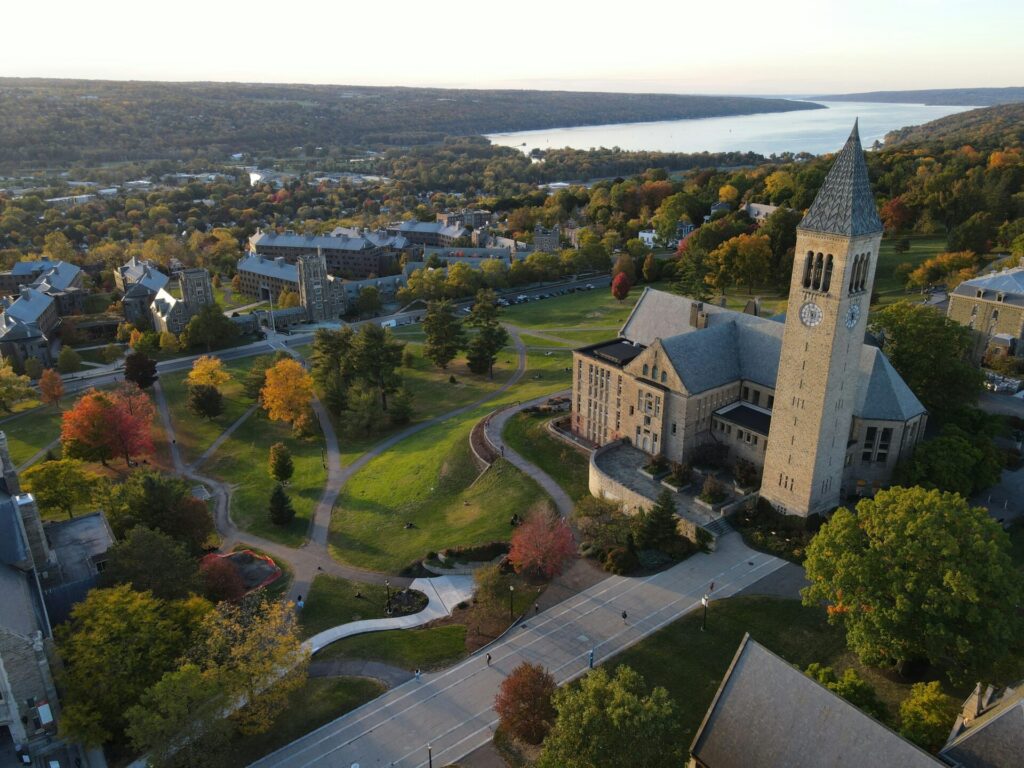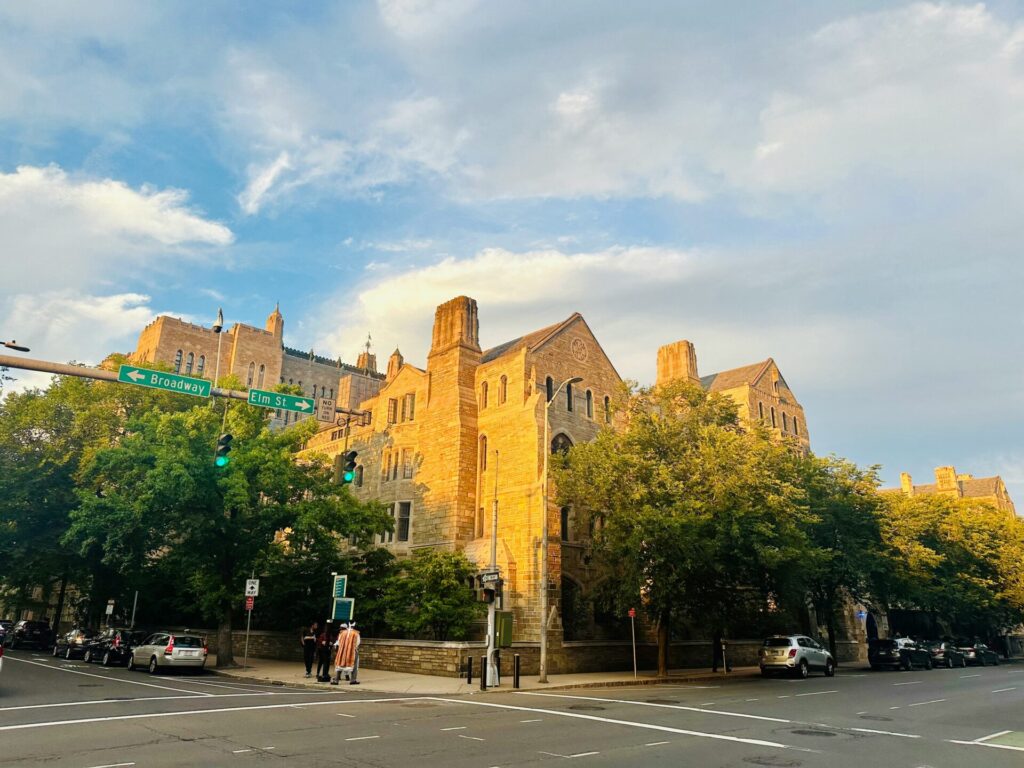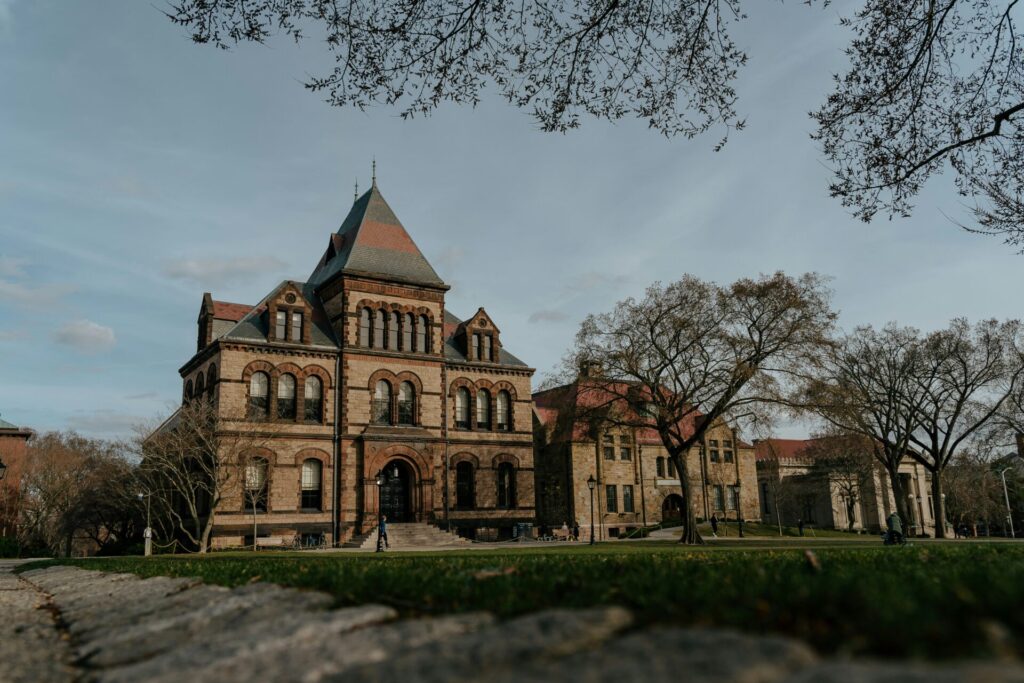University of Waterloo summer programs for high school students are unique, on-campus experiences designed to inspire, challenge, and build skills in STEM, entrepreneurship, and university-level learning. These programs cater to students from across Canada and around the world, often targeting those in Grades 9 through 12 who show a strong interest in academic enrichment.
Waterloo’s offerings range from one-day sessions to immersive, multi-week residential experiences. We’ve broken down every option below, as well as similar opportunities in Toronto and the rest of the world.
Many programs allow participants to live in residence, mimicking the experience of being a Waterloo student. Others are commuter-based and one is fully virtual, offering flexibility in how students engage. Waterloo also runs Future Ready, a three-week programme for international and Canadian students aged 15–17 focusing on university readiness, combining academic seminars with skills development.
Overall, these programs give students the chance to deepen their understanding of subjects they’re passionate about, meet like-minded peers, and get a taste of university life. Whether through fieldwork, lab experiments, or industry talks, participants are encouraged to think critically and creatively, supported by the innovation-first culture that defines the University of Waterloo.
Complete Overview of Waterloo’s Summer Programs
1. SPARCS (Seeing Possibilities and Rewards in Computer Science)
- Who: Female students in Grade 9 or 10 attending Canadian schools
- When: Spring
- What: A week-long program introducing young women to computer science, career paths, and breaking down stereotypes. No prior experience is required.
- Outcomes: Increased confidence in computing, exposure to female role models, and insight into tech careers.
- How to Apply: Visit the Waterloo website in early spring for application details.
2. GeoX Summer Camp
- Who: Students entering Grade 11 or 12
- When: August 10–16
- What: A residential camp focused on earth and environmental sciences, including field trips to places like active mines.
- Outcomes: Hands-on experience in geology and environmental science, networking with peers and experts.
- How to Apply: Applications open in spring; check the University of Waterloo’s GeoX page.
3. Catalyst Summer Program
- Who: Students in Grade 10 or higher
- When: July and August
- What: A leadership development camp drawing on Waterloo’s strengths in engineering, science, and innovation.
- Outcomes: Leadership skills, teamwork, and exposure to STEM innovation.
- How to Apply: Application details are available on the Catalyst Program webpage.
4. Engineering Science Quest
- Who: Grades 1–9
- When: July and August
- What: A summer camp that boosts confidence in science, engineering, and technology through hands-on activities.
- Outcomes: Increased interest in STEM, practical skills, and creative problem-solving.
- How to Apply: Register online; spots fill quickly.
5. STEMpowered
- Who: Self-identifying Black youth in Grades 2–12
- When: July and August
- What: Free day camps with STEM mentors and hands-on projects.
- Outcomes: Mentorship, community building, and STEM exploration.
- How to Apply: Details and registration are posted in spring.
6. Quantum Cryptography School for Young Students (QCSYS)
- Who: Grades 10–12
- When: August
- What: A week-long program focused on quantum cryptography, hosted by the Institute for Quantum Computing.
- Outcomes: Advanced understanding of quantum science, networking with experts.
- How to Apply: Applications typically open in late winter.
7. Anatomy 101
- Who: Students who have completed Grade 11 or 12
- When: July and August
- What: A one-day, university-level anatomy session.
- Outcomes: Insight into health sciences and university-level study.
- How to Apply: Register on the Waterloo website.
8. Online Summer Problem Solving Course (Mathematics)
- Who: High school students with Grade 11 math
- When: Summer
- What: An online, self-guided course to develop mathematical problem-solving skills.
- Outcomes: Enhanced math skills, preparation for contests and advanced studies.
- How to Apply: Registration opens in spring.
9. Shad
- Who: Grade 10 or 11 students
- When: July
- What: A four-week residential enrichment program in STEM and entrepreneurship.
- Outcomes: Innovation skills, leadership, and national peer network.
- How to Apply: Application process starts in fall; see Shad’s website.
10. FLIGHT Virtual Summer Camp
- Who: Black girls and underrepresented minorities, ages 13–18
- When: August
- What: Introduction to tech entrepreneurship.
- Outcomes: Entrepreneurial mindset, tech skills, and mentorship.
- How to Apply: Application details are posted in spring.
11. University Experience Program
- Who: Students aged 15–17 (Canadian and international)
- When: June 23–July 11, 2025
- What: Three-week program to develop critical thinking, problem-solving, and collaboration, with lectures across disciplines.
- Outcomes: University readiness, exposure to diverse fields, and innovative culture.
- How to Apply: Apply online via the Waterloo Future Students page.
Key Features of University of Waterloo Summer Programs
Waterloo’s programs prioritise STEM learning, leadership, and academic challenge. With offerings in subjects like quantum computing, anatomy, and entrepreneurship, they provide specialised experiences often not found in school. Many include residential stays between 1 and 4 weeks, field excursions, and expert-led sessions – though single-day experiences are also available. There’s a strong emphasis on practical skills, exposure to real-world tools, and collaboration in small cohorts.
Advantages
One major advantage of University of Waterloo summer programs for high school students is their variety. Students can choose from dozens of experiences tailored to specific subjects, skill levels, and personal goals. Whether you’re passionate about cryptography, environmental science, or innovation, there’s likely a programme that aligns with your interests.
Another strength is Waterloo’s reputation in STEM education. Attending a programme hosted by a globally recognised institution gives students the chance to learn from leaders in their field. It also builds confidence and motivation by placing students in a university-style setting, surrounded by peers who are similarly driven.
Many of the programmes are hands-on and immersive, with field trips, lab work, and real-world problem-solving. The opportunity to live in residence fosters early independence, time management, and a deeper sense of belonging within an academic community.
For students from underrepresented backgrounds, options like STEMpowered and FLIGHT provide accessible, inclusive routes into competitive fields. Meanwhile, courses like Future Ready and Catalyst support soft skills like critical thinking and collaboration—tools that are valuable beyond any single academic discipline.
Disadvantages
Despite their strengths, Waterloo’s summer programs may not suit everyone. Some offerings are very specialised, which is ideal for students with specific interests but might limit those still exploring subject options. This depth can also be daunting for students who are not yet comfortable with fast-paced, technical material.
The majority of the programs are science, technology, and engineering-focused, with fewer options in the arts or humanities. Students seeking broader academic exposure may find the subject range somewhat narrow.
Availability can also be a consideration. Spaces in high-demand programmes are often competitive, and if students need financial support to enable their partaking in a programme, availability of scholarships or bursaries may vary. Programmes tend to take place on campus, so students from around the globe wishing to take part remotely may encounter blockers if they can’t travel.
Finally, the University of Waterloo is known for its strong academic culture, which may feel intense for students not used to that level of structure and expectation. Although this can be a benefit in terms of preparation, it could also feel overwhelming for students looking for a more relaxed summer experience.
University of Waterloo vs Immerse Education
University of Waterloo summer programs for high school students provide an excellent opportunity for Canadian high school students to engage in academic exploration within a university setting, particularly in science, technology, and engineering fields, and some options are open to international students. However, they’re largely structured around traditional academic content and take place on or near campus, with a focus on subject-specific exposure rather than cross-disciplinary or global perspective. What’s more, several are limited to students with certain grades or backgrounds, or to students from certain environments.
Immerse Education’s Toronto programmes, in contrast, offer immersive, mentorship-driven experiences that blend academic challenge with creative exploration. These 2-week summer schools a great alternative for students wanting to experience study at a top Canadian university – because participants live and learn at the University of Toronto. Programmes cover areas like engineering, entrepreneurship, sustainability, and artificial intelligence, and are designed specifically for high school students aged 15–18 – from anywhere in the world. These are led by expert tutors from top global universities, with teaching styles that mirror undergraduate seminars – interactive, discussion-based, and reflective.
A key strength of Immerse lies in its programme design: small classes, carefully structured activities, and a strong balance between academic focus and social development. Students explore a subject in depth while also developing presentation skills, critical thinking, and academic confidence.
Waterloo provides hands-on learning in traditional lab or field settings across a huge range of subjects, whilst Immerse offers a standard, structured, future-facing educational experience that introduces students to how their subject of interest functions at university – and beyond. For students who want a focused, curated summer programme rooted in mentorship, friendship and personal development, Immerse offers a compelling alternative.
Join the Immerse Education 2025 Essay Competition
Follow the instructions to write and submit your best essay for a chance to be awarded a 100% scholarship.

Are University of Waterloo Summer Programs Worth It?
If you’re a high school student interested in science, engineering, or innovation, Waterloo’s summer programs are absolutely worth considering. They offer top-tier instruction, access to cutting-edge topics like quantum computing or environmental science, and the chance to live and study on a real university campus. These experiences can strengthen university applications, expand subject knowledge, and help students begin building a long-term academic identity. Just ensure the subject matter matches your interests and that you’re ready for an intellectually challenging environment.
University of Waterloo Summer Programs Alternatives
If you’re exploring alternatives to Waterloo’s summer options, there are many outstanding programmes across North America that offer similar academic rigour with a slightly different focus.
Stanford’s Pre-Collegiate Studies, for example, blends university-level teaching with residential life and covers topics from engineering to global affairs. Similarly, Columbia University’s pre-college programmes offer urban immersion paired with strong academic sessions in writing, science, and economics.
MIT and Carnegie Mellon also run summer programmes aimed at future STEM students, often involving cutting-edge lab access and faculty mentoring. These may be better suited to students seeking specific university environments or courses beyond what Waterloo offers.
For Canadian students specifically, Queen’s, McGill, and UBC also offer pre-university options. These tend to blend subject-based learning with broader leadership or university prep elements.
Then there’s Immerse Education’s broader international network. Their American centres in New York, Boston, and San Francisco offer immersive programmes in business, engineering, medicine, psychology, and more. These are great for students who want a personalised academic environment, tailored instruction, and a deeper look at university life. Whether your goals are STEM-driven or more exploratory, the alternatives are rich and varied – and many offer flexibility in programme length, format, and focus.
Immerse Programs in the USA and Additional Great Choices
Immerse Education’s programmes cater to students wanting to get ahead in STEM, but also offer insights into the humanities. In Toronto, Immerse offers programmes like Psychology, Medicine, and International Relations – designed to appeal to a broad range of interests and taught with small cohorts and a more personalised style. Boston offers core academic subjects like Engineering, Medicine and Business Management.
In New York and San Francisco, students can experience our Career Insights summer schools – which involve industry visits, hands-on workplace projects, and a focus on employable skills.Programmes take full advantage of each city’s unique culture, with San Francisco offering programmes like Entrepreneurship and Software Development with AI, whilst New York offers everything from Banking & Finance to Fashion & Design.
Each Immerse programme provides close academic support, clear learning outcomes, and a structured schedule that balances academic depth with cultural experiences. For students seeking direct subject matches in a more seminar-style, mentor-led environment, Immerse’s programmes deliver a sophisticated, globally minded alternative to university-run summer schools.
How to Apply for University of Waterloo Summer Programs
Each University of Waterloo summer programme has its own application process, so students should start by choosing the option that aligns with their interests. Most programmes will require a short application form, sometimes with a statement of interest or academic history. Competitive options, such as QCSYS or Catalyst, may involve earlier deadlines and selection criteria based on academic performance or motivation.
Some programmes are open only to certain grades or demographics—such as girls in STEM or students from underrepresented backgrounds—so eligibility is important to confirm. While some applications are reviewed on a rolling basis, others have fixed deadlines, often in spring. Scholarships and financial support may also require a separate application.
The best approach is to plan early: read programme details carefully, prepare any necessary documents, and apply well before the deadline. Reaching out directly to programme coordinators for clarification is encouraged, especially if you’re applying from outside Ontario or internationally.
Final thoughts
The University of Waterloo summer programs for high school students offer an impressive range of academic and skill-building opportunities – particularly for those interested in STEM fields. Whether you’re coding, digging into earth sciences, or thinking about quantum cryptography, there’s real academic substance here. That said, for students seeking a more globally focused or seminar-based summer learning experience, Immerse Education’s North American programmes offer a strong alternative. The key is finding the programme that best matches your subject interests, preferred learning style, and long-term academic goals.































